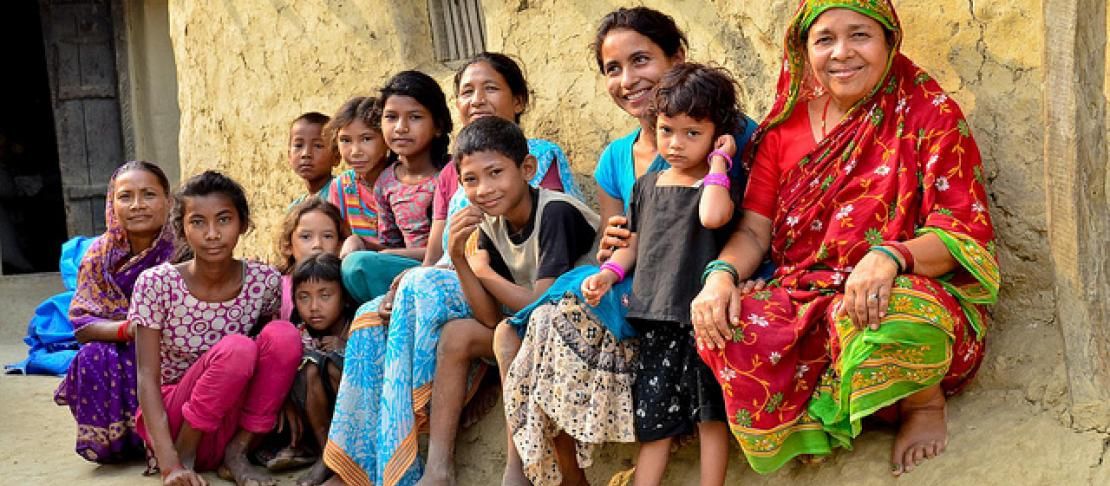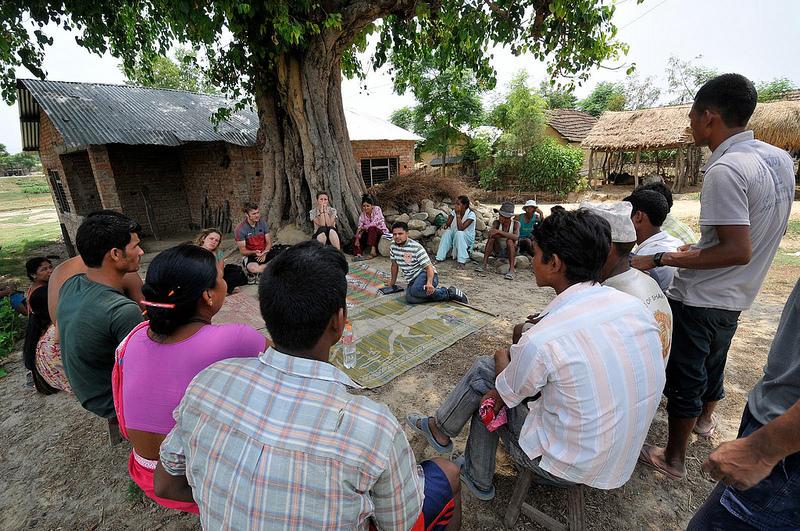Farms of the Future

A glimpse of the future
The CCAFS “Farms of the Future” project uses the climate analogue tool to connect farmers to their possible climate futures via farm visits. Through this novel anthropological approach of farmer-to-farmer exchanges between spatial analogues, CCAFS aims to establish, test and validate a sound methodology allowing identification of social, cultural and gender specific barriers for enabling behavioral change, therefore, an increased adaptive capacity.
This project addresses the following working hypothesis: by identifying and connecting analogue sites, research can:
- enable farmers to better envision how their site-specific agricultural future might look
- permit targeted on-the-ground testing of cropping systems’/technologies’ climate resilience.

CCAFS & RESEARCHERS FROM OXFORD SCOPE OUT POSSIBLE LOCATIONS FOR A FARMER EXCHANGE. Photo: N.Palmer
The Challenge
Future farming and food systems will face substantial, though different, changes in their environments. Some regions may benefit from more favorable climate conditions to production (the few winners), while others (the larger group of losers) will face increased climate change-related biotic and abiotic stresses. In areas where climate conditions improve, the traditional farming systems will be challenged in exploiting the additional production potential, and where conditions deteriorate, accelerated adaptation will be vital, as centuries-old coping mechanisms used by farmers may become insufficient or obsolete for that specific area. As climate “migrates” between regions, it will disproportionally affect resource-poor and marginalized farmers who have lower adaptive capacities but may depend entirely on agriculture for their livelihoods. Therefore, male and female farmers alike need to enhance their adaptive capacities.
About the Project
Specifically, we want to use farms of the future to address research questions such as:
- Do farmers think that they have the required knowledge, attitudes and practices to adapt to a plausible future climatic condition?
- How farmers envision their living environment by 2030?
- Just how adaptive are farmers, their communities and associated food systems?
- What are the major obstacles to effective, accelerated adaptation?
The adopted approach allows the participatory diagnosis of capacities and needs, thus aiding in the design of community-appropriate adaptation strategies. Results so far include:
- The development of a methodology to study farmer's social, cultural and gender specific barriers for enabling behavioral change and improve adaptive capacity based on farmer to farmer exchanges between analogue locations
- Three "Farms of the future" pilot projects successfully carried out in Nepal, Tanzania and Ghana.
- Synthesis reports including: a) analysis on the approach and recommendations for further up scaling and implementation, b) documentation of the effects of socio-cultural characteristics on the learning process, use and potential adoption of new mitigation and adaptation practices; Policy advisory document targeted to national decision makers on community level adaptive capacity and principle barriers to adapt effectively.
Key Links and Resources
Presentation: Farms of the Future
Blog: Farms of the Future hits Tanzania
Blog: Finding the future for farmers in Beora Nepal
Blog: Believable climate futures explored by Nepalese farmers
Read more blogs on Farms of the Future activities